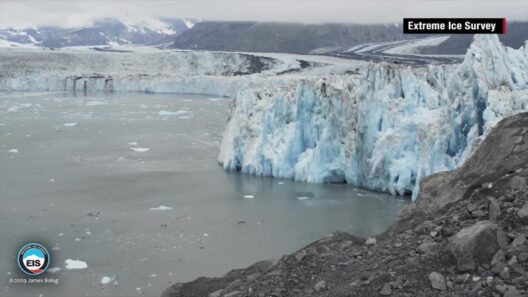As we stand on the precipice of an ecological precipice, the urgency to mitigate global warming has never been more pressing. Our planet is akin to a delicate tapestry, woven with the threads of life, climate, and ecosystems, each strand contributing to the harmonious balance that sustains us. Like an artist choosing the right colors for their canvas, we hold the power to influence this intricate masterpiece. The question looms large: how can we, collectively, shield our Earth from the incessant march of climate change?
The phenomenon of global warming has transformed our climate into a volatile entity. Its implications ripple through our lives, affecting agriculture, water resources, and even biodiversity. It is imperative that we recognize the profound interconnectedness of all living beings. Therefore, a multi-pronged approach is essential to combat this dire threat.
1. Embrace Renewable Resources
At the forefront of our defense against global warming lies the transition to renewable energy sources. The sun, wind, and water hold the keys to a cleaner future. By harnessing these inexhaustible resources, we can dramatically reduce our carbon footprint. Consider solar panels; they do not merely capture sunlight; they transform it into life-giving energy, akin to how trees convert light into sustenance. Wind turbines, with their elegant blades rotating with the breeze, are symbols of progress, converting kinetic energy into electric power. The shift to renewables is not a mere trend; it is a necessary evolution for the sustainability of our planet.
2. Advocate for Energy Efficiency
Energy efficiency is a powerful tool in our arsenal against global warming. The concept transcends simple conservation; it embodies a philosophical shift in how we perceive energy consumption. Upgrading infrastructure with energy-efficient designs is akin to dressing our homes and businesses in sustainable attire. Opting for LED lighting instead of incandescent bulbs, investing in high-efficiency appliances, and employing smart technologies not only reduce energy bills but also stimulate a culture of sustainability. Each act of efficiency is a stroke of the brush, painting a greener future.
3. Reforest and Preserve Natural Ecosystems
Forests are the lungs of our planet, absorbing carbon dioxide and releasing oxygen in a delicate symbiotic dance. This natural process is vital in mitigating climate change; thus, reforestation and afforestation are paramount. Planting trees should not be viewed merely as an environmental necessity but as an act of legacy for future generations. The revitalization of deforested areas is crucial. Nature herself is resilient, yet she requires our stewardship. Preserving existing ecosystems—wetlands, coral reefs, and grasslands—is equally critical. Each ecosystem possesses unique capabilities to sequester carbon, and their loss would be akin to unraveling threads from that intricate tapestry of life.
4. Engage in Climate-Conscious Transportation
Transportation is a significant contributor to greenhouse gas emissions. The shift towards more sustainable modes of transport can emulate a purposeful dance, reducing our carbon footprint while enhancing urban mobility. Investing in public transit, cycling infrastructure, and walkable cities forms the foundation for a sustainable transport network. Electric vehicles (EVs) herald a new era, dramatically cutting emissions compared to traditional fossil-fuel-powered cars. Additionally, adopting alternative fuels, such as hydrogen or biofuels, can revolutionize the transportation sector. Let us envision a future where roads are not merely arteries for machines but pathways for a sustainable society.
5. Cultivate Sustainable Agricultural Practices
Agriculture is not merely the cultivation of crops; it is a vital prelude to life itself. The methods employed in farming directly impact our ecological balance. Conventional farming practices often entwine with unsustainable chemical use and monocultures, leading to soil degradation and habitat loss. Transitioning to sustainable farming—organic practices, agroforestry, and permaculture—offers a holistic approach to food production. These farming methodologies embrace diversity, enhancing soil vitality and increasing resilience against climate variations. Supporting local food systems and conscious consumption can infuse vitality into our communities and support the planet simultaneously.
6. Advocate for Policy and Climate Justice
Policies play a pivotal role in shaping our approaches to environmental issues. Advocacy for stronger climate regulations, carbon pricing, and investments in sustainable infrastructure is essential. Herein lies the metaphorical call to arms; influential voices must arise from every corner of society, echoing the sentiments of sustainability and justice. Climate justice issues intersect with social equity, as the most vulnerable populations often bear the brunt of climate impacts. Thus, championing policies that protect both the Earth and its inhabitants is a moral imperative. The fight against global warming transcends generations; we must craft policies that serve all, ensuring a livable planet for the future.
7. Education and Awareness
Knowledge is power—a timeless adage that rings ever true in the context of climate action. Raising awareness about the realities of global warming can transform passive concern into active participation. Educational initiatives in schools, communities, and online platforms can cultivate a generation of environmentally conscious individuals. By fostering dialogue and disseminating information about sustainable practices, we can equip citizens with the tools to effect change. This movement can ripple across communities, igniting passion and collective action, much like a spark ignites kindling into a roaring fire.
In conclusion, combating global warming is not a solitary endeavor; it requires collective courage, tenacity, and an unwavering commitment to protecting our planet. The solutions exist, waiting to be embraced and propelled forward. As guardians of this extraordinary Earth, we possess the potential to rewrite our narrative, crafting a legacy that honors the delicate balance of nature. Our actions today will determine the world we leave behind. And so, we must answer this clarion call—for our planet, for ourselves, and for future generations.








